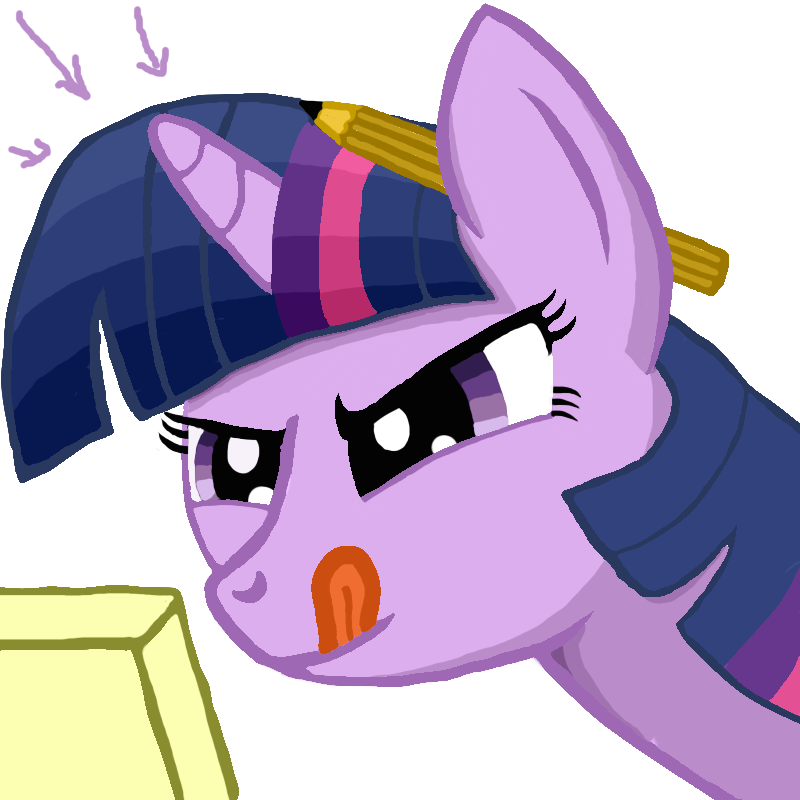Since we are growing quite large I've decided to put out this guide on critiquing to help both sides of the conversation, critics and artists alike.
The Basics
Critique is a conversation
It is not simply a teacher telling a student what to do. We are all your peers here, we take from you, you take from us. There are questions on both sides. What it takes to improve is a conversation, not orders. Silence on the part of the artist is sad.
Cover the why and the how
 Who's that? What's this?
Who's that? What's this?This is most important. I see a lot of critics saying what is right or wrong looking in a piece. This is good. But they leave it there. This isn't too helpful for those who have submitted. They know what is wrong, but not how to change it in the future.
The hard part of critiquing is knowing how or why the artist made that mistake or made something different and then telling them that. To go a step further if you can give advice on how to prevent that mistake in the future process wise then you are giving critique gold. Gesturing, guides, references, artistic examples, ways of thinking about ponies, it is all good.
Recognize Improvement
When an artist improves, tell them so. It is always nice to know that you are progressing. It gives the artist motivation to keep going and self respect. This point brings me to my next point.
Be Kind
Critiques can be very hard to take. Open and close with kindness. Not empty platitudes, but things you like about the work or a friendly gesture. This isn't a hard set rule and once someone is used to critique isn't too necessary. Still, be kind not robotic or fomulaic. These are people, just like you.
Play
This is a My Little Pony sub. Not some serious art time learn it now university class. Have fun.
 We need a playful emote other than this one... ahem... hinthint
We need a playful emote other than this one... ahem... hinthint Even at the university we had fun. Play!
Even at the university we had fun. Play!When there's nothing to say
When a work is good. They've submitted before and you've critiqued, but there's only little nitpicks to throw out there. This is a good chance to pretend there's a Push Me tag on that post. Push them in a new direction. Talk about style, composition, concept, shading, movement, emotion, or texture. This is also a great direction to push yourself when bored or feeling stagnant.
When the reception is weak
When an artist doesn't respond. This is a pain in the butt. For everyone. Artists learn less and critics have a harder time figuring out how to get into the critics head. So what to do? That's simple. Ask them to respond. Many artists are unaware of the fact that they're allowed to not understand something, disagree, ask 'stupid' questions (do, its encouraged) or even respond. Talk! Its okay! Yes, things will happen and emotions will be jostled, but if you don't do anything to never take the risk of being hurt, you never take anything. Learning, love... nothin'.
When the understanding isn't full
When the artists ask question after question after question and just don't get it. This is a frustrating moment for artists. They really want to know how to do something but it just doesn't click in their heads. Text is a really crappy way to convey artistic concepts. Unfortunately it is also the easiest way for us to communicate here. Sometimes an artist simply has to ** actually do** an exercise before it makes sense. Actually... this is most of the time. Have the critique open in a (possibly minimized) window and go over it a few times while drawing. It helps. For critics: Give them a simple exercise to do. Whether it be to follow along with a guide or simply to try different kinds of shading. Something to get them moving in the right direction. It is also okay to say 'I don't know, you're going to have to try it out' when replying. Frustrating for the artist, but the truth is better than nothing.
 When I say play I mean play dammit!
When I say play I mean play dammit! Try new things!
Try new things!When the lesson is misunderstood or not taken in full
This can be similar to weak reception. All to often artist and critic will have a wonderful critique/reply moment and then when the artist comes back nothing has changed. As a critic this is truly a facehoof moment. You want to help, but you don't want to just say the same thing over again. Obviously they didn't memorize everything you had to say, or just didn't understand it all.
 Or they ignored you,
Or they ignored you, but no one here would do that.
but no one here would do that.So what to do?
I don't know. I've been trying different things, like asking questions to draw out feedback, but so far this has given me too much grief as it draws out frustration and anger on the part of the artist too often. A desire to know what they want out of the sub and where they want to go can be misconstrued as a personal attack. Pushing them when they don't want to be pushed has too often resulted badly for me as well. I just don't know.
 This one makes me sad... A critic's first purpose is to help but people think they're being attacked. It is the very opposite of intention.
This one makes me sad... A critic's first purpose is to help but people think they're being attacked. It is the very opposite of intention.It is up to the artist themselves to define why they are here and that they want to learn. I am not here to force anyone to learn, but if someone is here I am assuming they are prepared to do so. Improvement doesn't come without change and (artistic) change doesn't happen without effort.
How to Take The Most From Critique
A list of things to consider about critique.
 Lists lists, I love lists.
Lists lists, I love lists.Critiques can be huge intimidating walls of text. This guide is here to help show how to take the most from your critiques. It is for everyone as critique is quite complex.
Take it all in
What else to do to other than just read?
- Have the previous critique up while working. We don't expect you to memorize them
- Re-read old critiques.
 Read read read read read.
Read read read read read.
There's always something that you've missed or didn't consider that way. Another layer of depth. - And again, like I always have and always will recommend: Ask questions. To us and to yourself. Work from general to specific.
- Look at new references. What does x that's in the critique look like? Find a reference for it.
The bowl metaphor
This is the most important part of this guide. Think of the mind like a bowl. What you know is water inside the bowl and the knowledge, information and techniques we share here is us pouring more water into the bowl. This works out very well, unless you come to the sub with a bowl already filled on a subject. The sub gives and gives, but the water is just pouring out as you legitimately reason your way around what we are trying to teach. This is a very sad moment.
- You already like your style.
- You already like how you work.
- You already know what you want.
In all these, you want things a certain way and see our advice as contraty to that. Your bowl is full. We have all this knowledge and teaching to share and its pouring all over the floor. Sadness.
 You know so many things... but you're not full. There is always more to learn.
You know so many things... but you're not full. There is always more to learn.Empty your bowl
Be ready for change. You will be uncomfortable. It will feel like you've taken five steps back. This is learning without knowing beforehand. Its scary. But its fun. And you make progress.
Move on to the next piece
Learning anatomy nitpicks v. whole new processes. You want to get anatomy right, great, nitpick. It will help you to see. But if you want to fix the composition, making little nitpicks isn't going to help you to learn how to make good ones as much as making a whole new thing. Yes, revision is good, but No sitting on the same piece for a week isn't. This is about balance. Wanting to fix everything is normal. It's human. But you need experience and you need to apply what you've learned from the critique to a new composition. It will help you to create.
Additional things you can do
A few things to keep an eye out for when reading critiques:
- Questions Answer these! They're asked so that the critique conversation can be furthered and your critic understands what to go over next.
- Hints on process or drawing methods. Read/reread these while working. This is the meat of your critique.
- Blue links This goes without saying, but guides are awesome! They go in depth where a critic doesn't. Also links contain references and bi-weekly challenges and all sorts of useful things.
 Quick question! Why do we have no Fluttershy emote of our own? ...she's Fluttershy.
Quick question! Why do we have no Fluttershy emote of our own? ...she's Fluttershy.That's all I've got for now. Feel free to leave your own perturbances/difficulties as a critic or artist.
 Or your own perturbances with me.
Or your own perturbances with me. It doesn't end.... actually, it does, today's my last graveyard shift, last day at work and last day for so much internet free time.
It doesn't end.... actually, it does, today's my last graveyard shift, last day at work and last day for so much internet free time. So its been fun everypony. I'll be around. Perhaps more sometimes, perhaps less others. But it will be different.
So its been fun everypony. I'll be around. Perhaps more sometimes, perhaps less others. But it will be different. I'm actually hoping to do more livestreams now that there will be a little time.
I'm actually hoping to do more livestreams now that there will be a little time. But my moments will become more precious, so I'm going to be spending time with friends/studying/traveling
But my moments will become more precious, so I'm going to be spending time with friends/studying/traveling